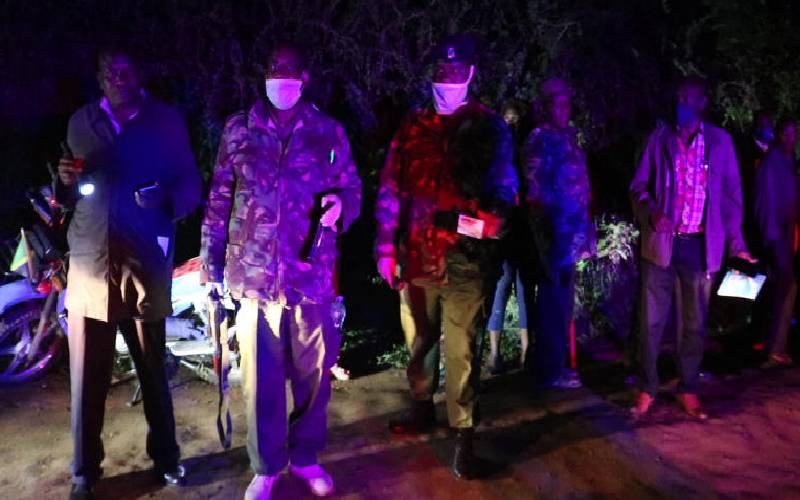×
The Standard e-Paper
Fearless, Trusted News

Police officers at the scene where KFS officer shot his wife, committed suicide in Embu County. [Muriithi Mugo, Standard]
Within a span of four days inside 2021, five police officers have died in self-inflicted shooting incidents. This has set alarm bells ringing among civilians struggling to accommodate cops living within their neighbourhoods.